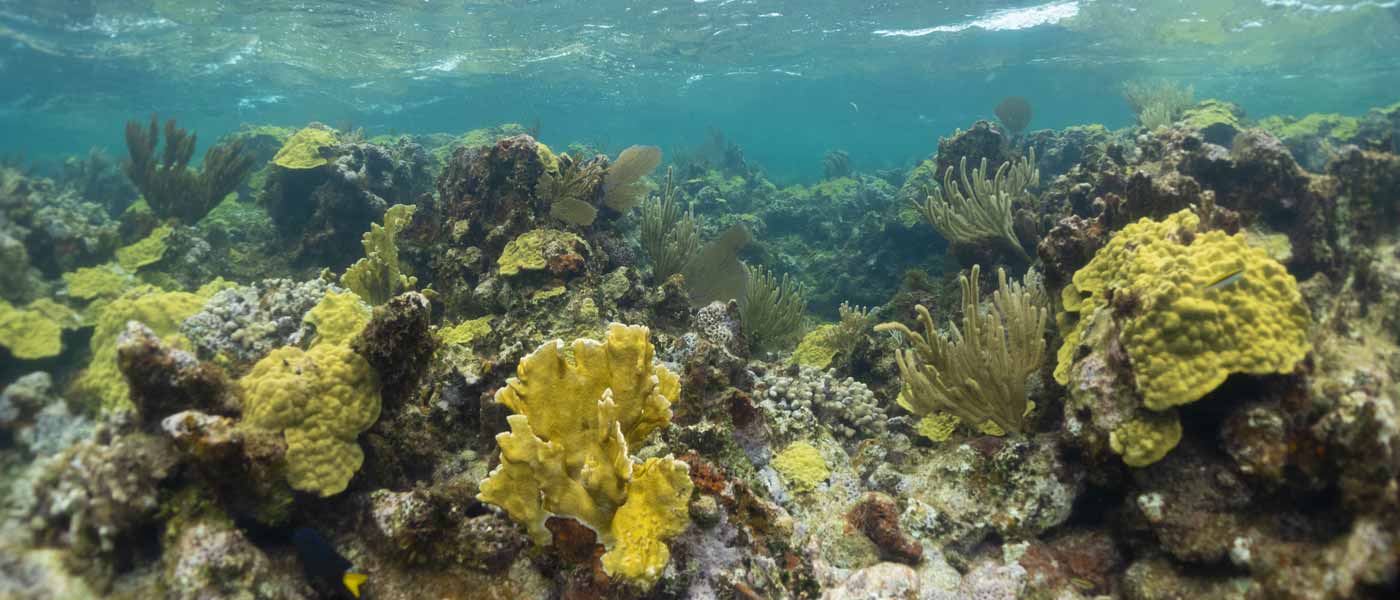
Communication
Enhance communication between ciguatera affected communities, stakeholders, educators, scientists, and clinicians to improve health literacy, knowledge, and improve public health strategies for ciguatera poisoning.
Research Aims
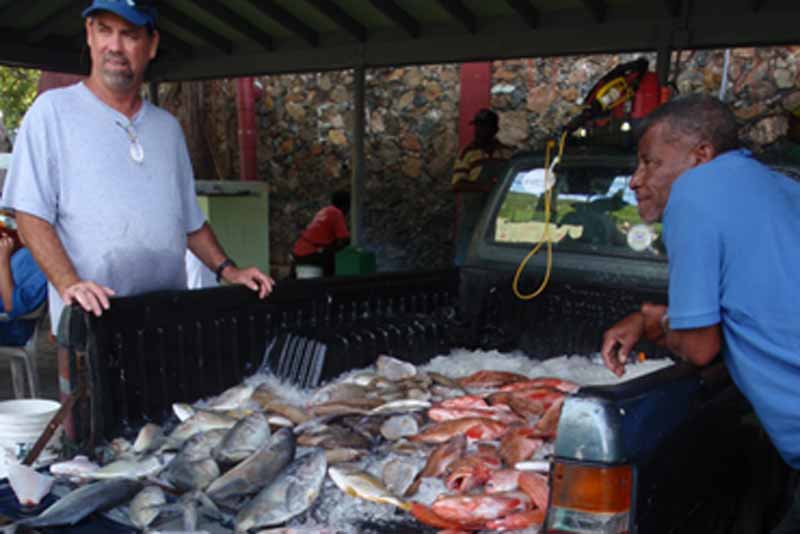
Specific Aim 1:
Determine the current state of knowledge about ciguatera in major stakeholder groups across the Gulf Coast region and the US Virgin Islands
Fresh off the boat in the Virgin Islands
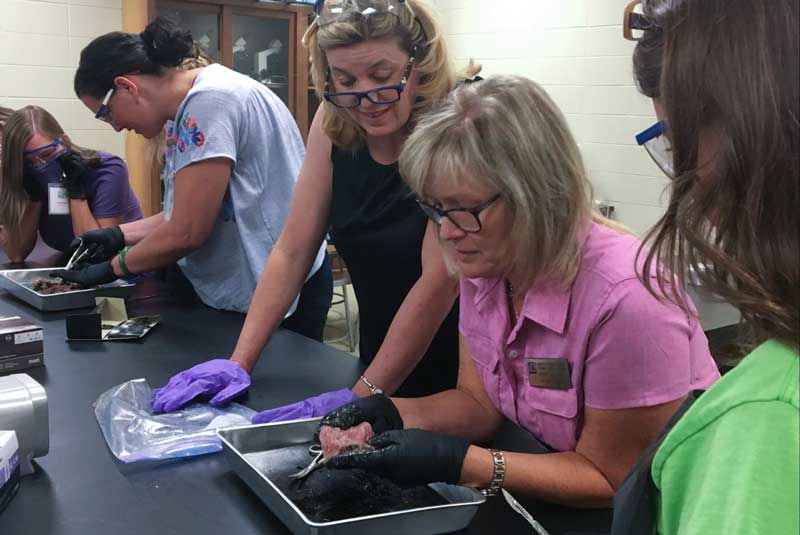
Specific Aim 2:
Implement community education utilizing multi-media platforms while employing principles of community engagement and participation to drive knowledge areas and identify best practices
Teacher workshop to learn more about ciguatera

Specific Aim 3:
Promote bidirectional communication through online and in-person opportunities for feedback and evaluation of educational tools
Project Lead
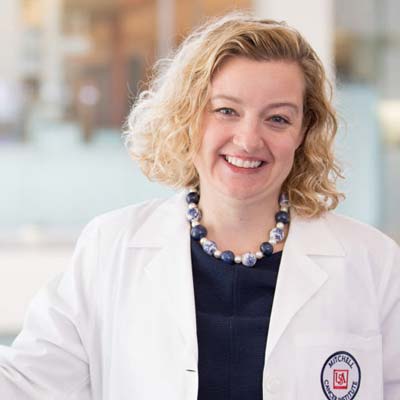
Jennifer Pierce, MD, MPH
USA Health Mitchell Cancer Institute
The Dauphin Island Sea Lab
CEC Lead
[email protected]
Dr. Jennifer Young Pierce is a Senior Staff Physician and Professor of Gynecologic Oncology at the University of South Alabama Mitchell Cancer Institute (MCI). She joined MCI in 2017 with national expertise in Human Papilloma virus (HPV) and cervical cancer and currently serves as the Leader of Cancer Prevention and Control as well as an Abraham A. Mitchell Clinical Cancer Research Scholar. She was born and raised in Sumpter, South Carolina and went to medical school at the Medical University of South Carolina in Charleston. She completed her residency at Brigham and Women’s Hospital/Massachusetts General Hospital Integrated Residency in Obstetrics and Gynecology at Harvard Medical School, and completed her fellowship in Gynecologic Oncology at the University of Virginia (UVA). She completed her Masters’ in Public Health while at UVA, and as part of this degree, conducted research with the Joint Commission on Health Care for the Virginia General Assembly on HPV vaccination in Virginia. After completing her fellowship, Dr. Pierce returned to MUSC in South Carolina where she practiced for 8 years at the HOllings Cancer Center. She is board certified in Obstetrics and Gynecology as well as Gynecologic Oncology. Most importantly, Dr. Pierce is deeply committed to the care of women with gynecologic cancers and spends the majority of her time seeing patients and performing radical surgeries for cancer treatment. She currently serves at the Community Engagement Core leader for the Greater Caribbean Center for Ciguatera Research (GCCCR) and in this capacity overseas all aspects of the community education, dissemination of information, and feedback related to community education surrounding ciguatera toxin and the ongoing research of the GCCCR.
Learn More... (usaheathsystem.com)
Dr. Jennifer Young Pierce is a Senior Staff Physician and Professor of Gynecologic Oncology at the University of South Alabama Mitchell Cancer Institute (MCI). She joined MCI in 2017 with national expertise in Human Papilloma virus (HPV) and cervical cancer and currently serves as the Leader of Cancer Prevention and Control as well as an Abraham A. Mitchell Clinical Cancer Research Scholar. She was born and raised in Sumpter, South Carolina and went to medical school at the Medical University of South Carolina in Charleston. She completed her residency at Brigham and Women’s Hospital/Massachusetts General Hospital Integrated Residency in Obstetrics and Gynecology at Harvard Medical School, and completed her fellowship in Gynecologic Oncology at the University of Virginia (UVA). She completed her Masters’ in Public Health while at UVA, and as part of this degree, conducted research with the Joint Commission on Health Care for the Virginia General Assembly on HPV vaccination in Virginia. After completing her fellowship, Dr. Pierce returned to MUSC in South Carolina where she practiced for 8 years at the HOllings Cancer Center. She is board certified in Obstetrics and Gynecology as well as Gynecologic Oncology. Most importantly, Dr. Pierce is deeply committed to the care of women with gynecologic cancers and spends the majority of her time seeing patients and performing radical surgeries for cancer treatment. She currently serves at the Community Engagement Core leader for the Greater Caribbean Center for Ciguatera Research (GCCCR) and in this capacity overseas all aspects of the community education, dissemination of information, and feedback related to community education surrounding ciguatera toxin and the ongoing research of the GCCCR.
Learn More... (usaheathsystem.com)
Co-Investigators
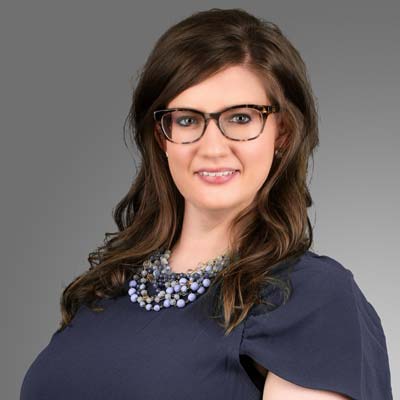
Casey Daniel, Ph.D.
USA Mitchell Cancer Institute
[email protected]
Dr. Daniel is an Assistant Professor of Oncologic Sciences at the University of South Alabama (USA) Mitchell Cancer Institute and faculty member in the USA College of Medicine’s Department of Family Medicine. She earned her undergraduate degree from Birmingham-Southern College before completing her master’s and doctoral degrees in public health at the University of Alabama at Birmingham. She completed postdoctoral training in cancer prevention and control at the Harvard T.H. Chan School of Public Health and Dana-Farber Cancer Institute before being recruited as the first faculty of the USA Mitchell Cancer Institute’s Division of Cancer Control and Prevention. In this role, Dr. Daniel conducts research, teaches, and mentors students at the undergraduate and graduate levels. Her work focuses on behavioral epidemiology, studying health-related behaviors, leading to evidence-based, targeted interventions within populations.
Dr. Daniel’s current research heavily emphasizes the human papillomavirus (HPV) and HPV-associated cancers, with particular concentration on adolescent vaccination uptake and completion. She is dedicated to improving vaccination rates and health outcomes in Alabama (her home state), especially in rural and underserved populations while targeting health disparities. These commitments have led her to election as Chair of the Alabama Comprehensive Cancer Control Coalition and her appointment as Lead of the Data Work Group for the Alabama Adolescent Vaccination Task Force, among other local, state, and regional leadership.
Dr. Daniel is an Assistant Professor of Oncologic Sciences at the University of South Alabama (USA) Mitchell Cancer Institute and faculty member in the USA College of Medicine’s Department of Family Medicine. She earned her undergraduate degree from Birmingham-Southern College before completing her master’s and doctoral degrees in public health at the University of Alabama at Birmingham. She completed postdoctoral training in cancer prevention and control at the Harvard T.H. Chan School of Public Health and Dana-Farber Cancer Institute before being recruited as the first faculty of the USA Mitchell Cancer Institute’s Division of Cancer Control and Prevention. In this role, Dr. Daniel conducts research, teaches, and mentors students at the undergraduate and graduate levels. Her work focuses on behavioral epidemiology, studying health-related behaviors, leading to evidence-based, targeted interventions within populations.
Dr. Daniel’s current research heavily emphasizes the human papillomavirus (HPV) and HPV-associated cancers, with particular concentration on adolescent vaccination uptake and completion. She is dedicated to improving vaccination rates and health outcomes in Alabama (her home state), especially in rural and underserved populations while targeting health disparities. These commitments have led her to election as Chair of the Alabama Comprehensive Cancer Control Coalition and her appointment as Lead of the Data Work Group for the Alabama Adolescent Vaccination Task Force, among other local, state, and regional leadership.
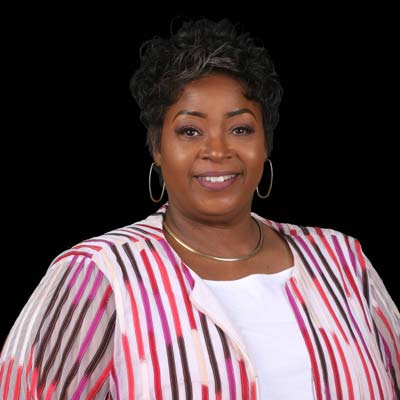
Janel Lowman, MHA
USA Mitchell Cancer Institute
[email protected]
Janel Loman, MHA, has over a decade’s worth of experience in community outreach and education at the University of South Alabama, beginning her career as a Certified Asthma Educator and Coordinator of the University’s BreathMobile. From 2010 - 2016, Ms. Lowman served as Assistant Director for several major grants totaling $7.3 million in external funding. The largest of these grants is the Community Health WOrkers Training Project funded by the Gulf Region Health Outreach Program as part of the BP Deepwater Horizon Oil Spill Medical settlement. This program is designed to enhance health care capacity and strengthen communities in coastal Louisiana, Mississippi, Alabama, and Florida, by training and placing Community Health Workers in areas affected by the spill. Currently, Ms. Lowman’s current role is Associate Manager of Community Outreach with the University of South Alabama’s Mitchell Cancer Institute. Her role encompasses developing and implementing cancer screening initiatives throughout the region.
Ms. Lowman regularly collaborates with community leaders and organizations to help identify and meet the needs of underserved communities. She has been extensively involved in developing training curricula, creating and organizing training materials, recruiting program participants, planning and facilitating training sessions.
Ms. Lowman maintains an active academic research agenda, presenting papers at conferences and publishing in outlets such as the Journal of Applied Social Science. She has served as co-chair of the American Public Health Association's Community Health Workers Award Committee. Her professional memberships include the American Public Health Association, National Asthma Educators, and the Alabama Comprehensive Cancer Control Coalition. She is also a State of Texas trained CHW Instructor and has completed the Dr. Harold P. Freeman Patient Navigation Training in New York, New York.
Janel Loman, MHA, has over a decade’s worth of experience in community outreach and education at the University of South Alabama, beginning her career as a Certified Asthma Educator and Coordinator of the University’s BreathMobile. From 2010 - 2016, Ms. Lowman served as Assistant Director for several major grants totaling $7.3 million in external funding. The largest of these grants is the Community Health WOrkers Training Project funded by the Gulf Region Health Outreach Program as part of the BP Deepwater Horizon Oil Spill Medical settlement. This program is designed to enhance health care capacity and strengthen communities in coastal Louisiana, Mississippi, Alabama, and Florida, by training and placing Community Health Workers in areas affected by the spill. Currently, Ms. Lowman’s current role is Associate Manager of Community Outreach with the University of South Alabama’s Mitchell Cancer Institute. Her role encompasses developing and implementing cancer screening initiatives throughout the region.
Ms. Lowman regularly collaborates with community leaders and organizations to help identify and meet the needs of underserved communities. She has been extensively involved in developing training curricula, creating and organizing training materials, recruiting program participants, planning and facilitating training sessions.
Ms. Lowman maintains an active academic research agenda, presenting papers at conferences and publishing in outlets such as the Journal of Applied Social Science. She has served as co-chair of the American Public Health Association's Community Health Workers Award Committee. Her professional memberships include the American Public Health Association, National Asthma Educators, and the Alabama Comprehensive Cancer Control Coalition. She is also a State of Texas trained CHW Instructor and has completed the Dr. Harold P. Freeman Patient Navigation Training in New York, New York.
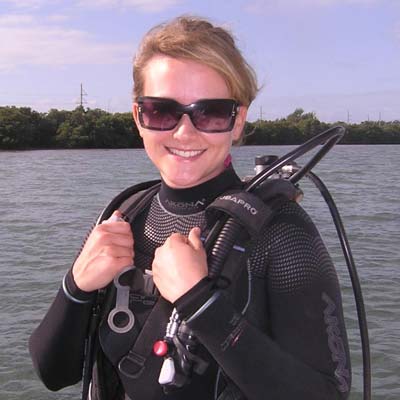
Ashley Abram, MS
Florida Gulf Coast University
CEC Coordinator
[email protected]
Ashley received her B.A. in Environmental Studies and B.S. in Marine Science from Florida Gulf Coast University in 2012 and then her M.S. in Environmental Science in 2016. She currently serves as the southwest Florida liaison for the Community Engagement Core project of the Greater Caribbean Center for Ciguatera Research. She also participates in the field research and data analysis required for RP1. Her experience with Ciguatera research began in 2010 with her interest in coral health and algal dynamics. She is primarily interested in the connections between coral reef ecology and macroalgal overgrowth and how this may potentially impact human health through adverse effects involving Ciguatera poisoning.
Ashley received her B.A. in Environmental Studies and B.S. in Marine Science from Florida Gulf Coast University in 2012 and then her M.S. in Environmental Science in 2016. She currently serves as the southwest Florida liaison for the Community Engagement Core project of the Greater Caribbean Center for Ciguatera Research. She also participates in the field research and data analysis required for RP1. Her experience with Ciguatera research began in 2010 with her interest in coral health and algal dynamics. She is primarily interested in the connections between coral reef ecology and macroalgal overgrowth and how this may potentially impact human health through adverse effects involving Ciguatera poisoning.
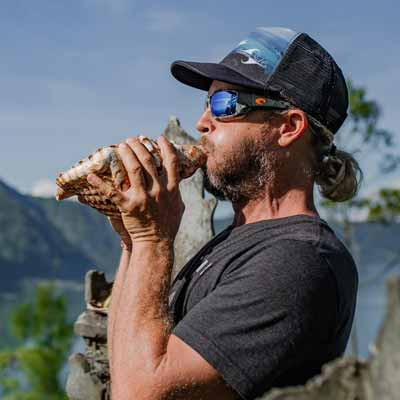
Adam Quandt
University of the Virgin Islands (UVI)
CEC Coordinator
[email protected]
Adam Quandt is an educator, environmental steward, adventure seeker, and healthy lifestyles advocate. After earning a Bachelor of Science Degree in Marine Biology from the University of the Virgin Islands (UVI), Adam worked on a variety of different research projects that included environment impact studies, rapid reef assessments, larval fish recruitment studies, and a grouper spawning aggregation project. After several years of marine research, Adam changed careers and began teaching science and math at Antilles School, where he became the Dean of Students for the middle and upper schools. These experiences, his connection to the ocean, and his passion for education help him continue to live his life with purpose, guiding others on their journey and helping preserve our natural world.
Adam Quandt is an educator, environmental steward, adventure seeker, and healthy lifestyles advocate. After earning a Bachelor of Science Degree in Marine Biology from the University of the Virgin Islands (UVI), Adam worked on a variety of different research projects that included environment impact studies, rapid reef assessments, larval fish recruitment studies, and a grouper spawning aggregation project. After several years of marine research, Adam changed careers and began teaching science and math at Antilles School, where he became the Dean of Students for the middle and upper schools. These experiences, his connection to the ocean, and his passion for education help him continue to live his life with purpose, guiding others on their journey and helping preserve our natural world.